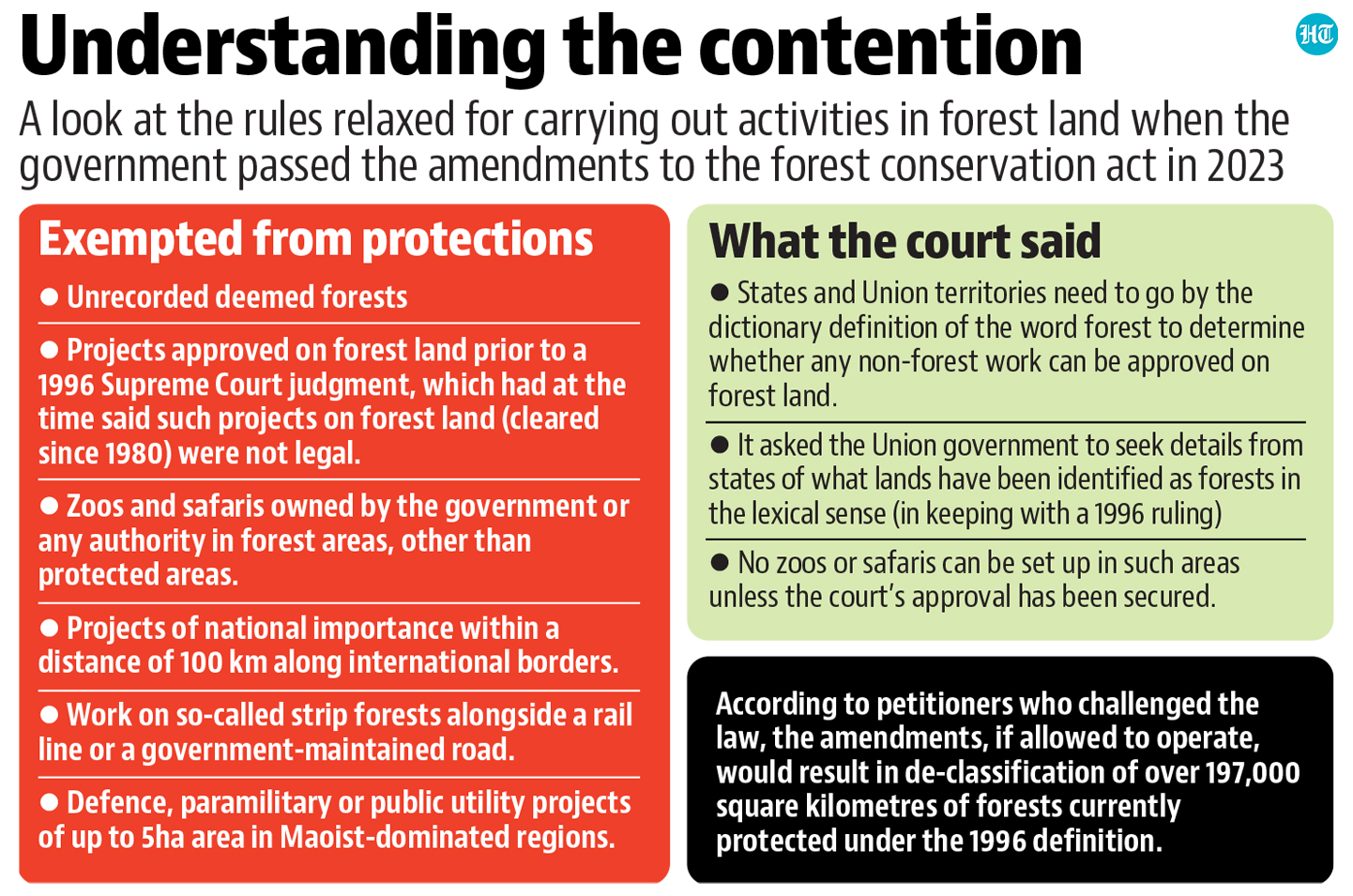The revised Forest Conservation Act from last year is being contested in a public interest lawsuit. The 1996 ruling states that the term “forest” must be interpreted in accordance with its dictionary definition, which includes unreported forest area.
According to the 2023 amendment, property cannot be considered a forest unless it is officially mentioned in a government record or receives notification. It is argued that the revised definition will deprive approximately 1.97 lakh square kilometres of unreported forest land of the protection it previously had. Concerns about the diversion of forest area for uses other than forests are legitimate and should be taken seriously.

Source: X.com
States and union territories were required to create a register of forest land within a year of receiving notification of the revised regulations in November 2023. The petitioners expressed concern that during this exercise, land designated as “forest” under the previous definition might be used for purposes other than forests.
The Supreme Court has now requested that the Centre provide a list of all the property that panels made up of states and UTs have registered as “forest” using the 1996 standard. Some states still haven’t classified their woods in compliance with the order, even after 27 years. It is inevitable that the data will be checked for inconsistencies.
Source: Drishti IAS : English
The court’s remark that the dictionary interpretation was chosen in order to comply with the Forest Conservation Act of 1980 creates the foundation for compelling arguments and, ideally, a change in direction.
It is good that obtaining the court’s permission before opening zoos and safaris is a requirement. To prevent large-scale initiatives that jeopardise natural forests and wildlife, expert review is required.
What do you think about this? Comment below.

